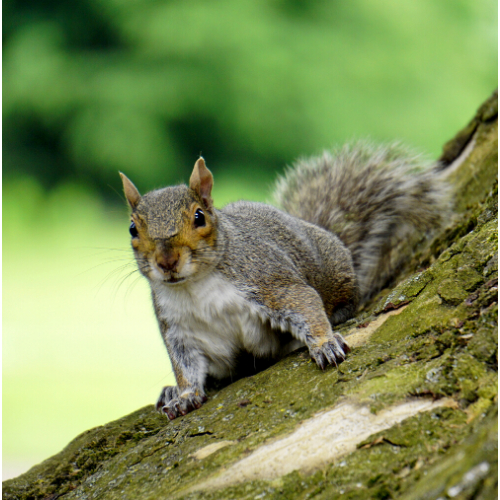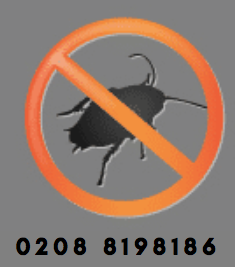Keep pesky squirrels at bay in Islington. We specialize in humane grey squirrel control for your garden and Islington home. Say goodbye to unwanted furry guests with our expert solutions
Our Squirrel Control Treatments in Islington
Squirrels, particularly the grey squirrel, can often become a nuisance in Islington and surrounding areas. They’re not only garden invaders but can also find their way into your home, causing damage and disturbances. At Islington Pest Control, we understand the unique challenges that squirrels pose and offer effective, humane, and environmentally friendly squirrel control solutions.

Here’s what you can expect from our squirrel control treatments:
- Professional Assessment: Our expert technicians will conduct a thorough assessment of your property to identify squirrel activity, entry points, and potential nesting areas.
- Humane Removal: We prioritize humane methods for squirrel removal. Live trapping and relocation are some of the techniques we employ to ensure these creatures are safely removed from your property.
- Preventive Measures: To prevent future squirrel infestations, we’ll seal entry points and implement effective deterrents, so you can enjoy a squirrel-free environment.
- Environmentally Friendly: Our treatments are eco-conscious, ensuring they are safe for your family, pets, and the environment.
- Affordable Solutions: We provide cost-effective squirrel control services that cater to both residential and commercial properties in Islington.
- Experienced Team: With years of experience in pest control, our team is well-equipped to handle any squirrel-related challenges, no matter how big or small.
- Responsive Service: We understand that squirrel issues can be urgent. Our team is ready to respond promptly to your calls, offering fast solutions to your squirrel problems.
Don’t let squirrels take over your Islington property. Contact Islington Pest Control today for efficient and humane squirrel control solutions.
What to do if you suspect you have squirrels in your loft space
- Listen for Sounds: Pay attention to any scratching, scurrying, or gnawing noises coming from the loft. Squirrels are active during the day, so you’re more likely to hear them then.
- Check for Entry Points: Inspect your property’s exterior for potential entry points. Squirrels can enter through gaps, vents, or damaged areas in the roof or walls.
- Look for Droppings: Squirrel droppings resemble small, cylindrical pellets. If you find such droppings in your loft, it’s a sign of squirrel activity.
- Check for Nesting Materials: Squirrels often build nests using leaves, twigs, and insulation. Look for these materials in your loft space.
- Inspect Wiring and Pipes: Squirrels may chew on wires and pipes, causing damage. Check for any signs of gnaw marks or exposed wiring.
- Monitor for Damage: Examine stored items in your loft for damage. Squirrels may chew on personal belongings, wires, or insulation.
- Set Up Motion-Activated Lights: Install motion-activated lights in your loft to detect any movement during the night.
- Secure Potential Entry Points: Seal off any gaps or openings in the roof, walls, or vents to prevent squirrels from entering your loft.
- Trim Overhanging Branches: If trees are near your property, trim branches that provide easy access to your roof.
- Consider Professional Help: If you suspect squirrels or have confirmed their presence, it’s best to contact a pest control professional. Attempting to remove squirrels yourself may be ineffective or result in harm to the animals.
Remember that squirrels are protected by law in many places, and humane removal methods should be employed. Professional pest control services can assess the situation, safely remove the squirrels, and provide preventive measures to keep them from returning
Frequently asked questions (FAQs) regarding squirrel control in loft spaces
- Q: How can I tell if I have squirrels in my loft?
- A: Common signs include hearing scratching or scurrying noises, finding squirrel droppings, discovering nesting materials, and seeing chewed wires or insulation.
- Q: Are squirrels in the loft a common problem?
- A: Yes, squirrels entering loft spaces in homes is a common issue, especially in urban and suburban areas.
- Q: Can squirrels cause damage in my loft?
- A: Yes, squirrels can cause damage by chewing on wires, pipes, and insulation. They may also damage stored items and create nests in your loft.
- Q: How do squirrels access my loft?
- A: Squirrels access lofts through openings or gaps in the roof, walls, vents, or eaves. They can also climb along overhanging branches.
- Q: Are squirrels harmful to humans?
- A: Squirrels are generally not harmful to humans, but they can carry diseases and may become aggressive if cornered.
- Q: Can I remove squirrels from my loft myself?
- A: It’s not recommended to attempt removal on your own, as it may be ineffective and cause harm to the animals. It’s best to contact a professional pest control service.
- Q: How are squirrels removed from lofts?
- A: Pest control professionals use humane trapping and exclusion techniques to remove squirrels safely. Once removed, they are released away from your property.
- Q: Is it legal to remove squirrels from my loft?
- A: In many places, squirrels are protected by wildlife laws. It’s essential to consult local regulations and hire a licensed professional for humane removal.
- Q: How can I prevent squirrels from returning to my loft?
- A: Preventive measures include sealing entry points, trimming overhanging branches, installing motion-activated lights, and keeping your loft clean and clutter-free.
- Q: Can squirrels carry diseases?
- A: Squirrels can carry diseases like leptospirosis and ticks. Avoid direct contact with them and their waste, and consult a professional for safe removal.
Remember that addressing a squirrel issue in your loft promptly is essential to prevent further damage and ensure the humane treatment of these animals. Consult with a pest control expert for the most effective and ethical solution.

